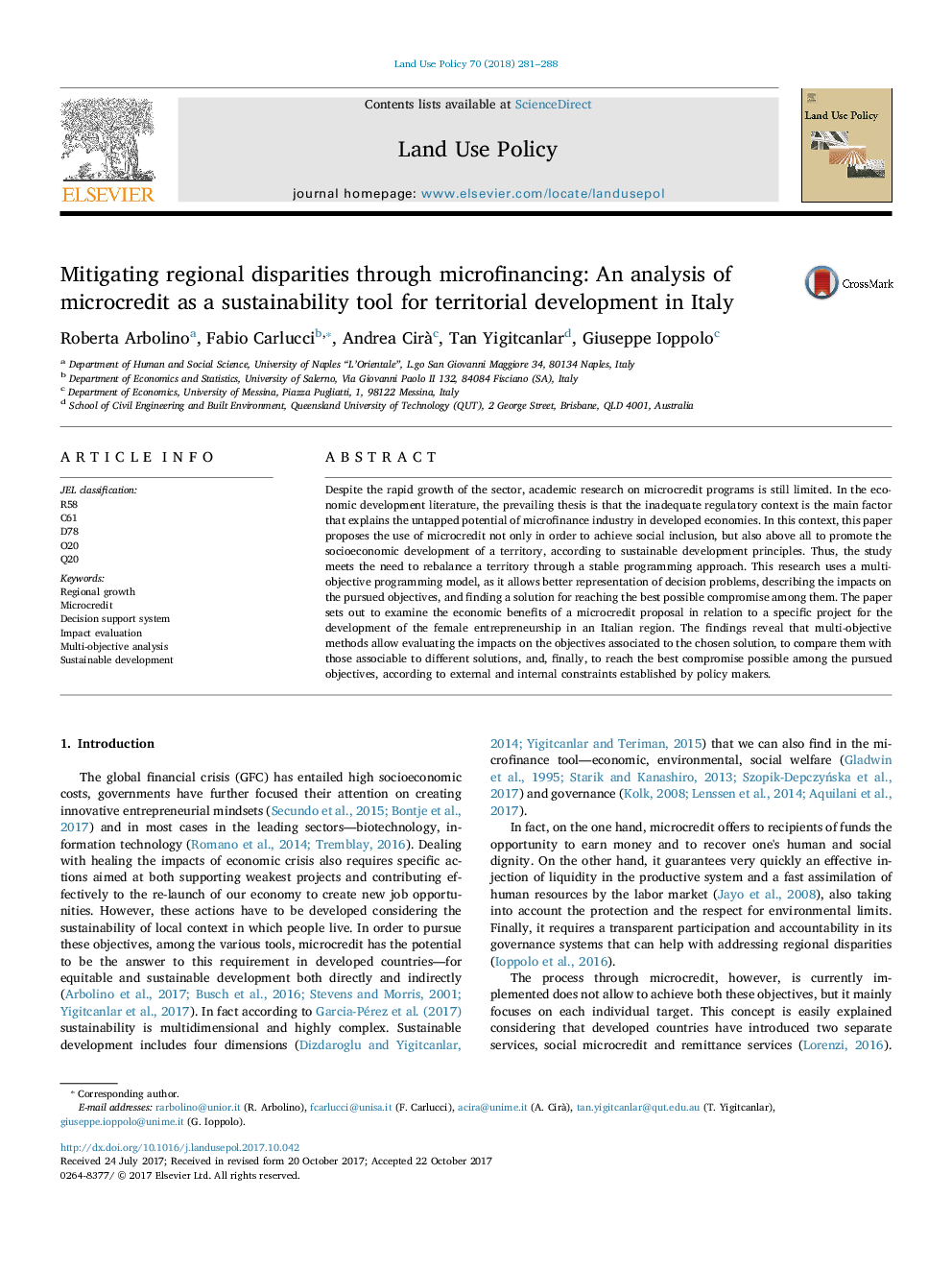ترجمه فارسی عنوان مقاله
تضعیف نابرابری های منطقه ای از طریق کمک های مالی: تجزیه و تحلیل وام های کوچک به عنوان یک ابزار پایدار برای توسعه منطقه در ایتالیا
عنوان انگلیسی
Mitigating regional disparities through microfinancing: An analysis of microcredit as a sustainability tool for territorial development in Italy
| کد مقاله | سال انتشار | تعداد صفحات مقاله انگلیسی |
|---|---|---|
| 161911 | 2018 | 8 صفحه PDF |
منبع

Publisher : Elsevier - Science Direct (الزویر - ساینس دایرکت)
Journal : Land Use Policy, Volume 70, January 2018, Pages 281-288
ترجمه چکیده
علیرغم رشد سریع بخش، تحقیقات علمی در مورد برنامه های قرضه کوچک هنوز محدود است. در ادبیات توسعه اقتصادی، نکته غالب این است که زمینه قانونی ناکافی عامل اصلی است که پتانسیل استفاده نشده از صنایع کوچک در اقتصادهای توسعه یافته را توضیح می دهد. در این راستا، در این مقاله، استفاده از وام های کوچک نه تنها به منظور دستیابی به انعطاف پذیری اجتماعی، بلکه همچنین برای ارتقاء توسعه اقتصادی اجتماعی و اقتصادی بر اساس اصول توسعه پایدار پیشنهاد می شود. بنابراین، مطالعه با نیاز به تعادل یک قلمرو از طریق روش برنامهریزی پایدار مطابقت دارد. این تحقیق از یک مدل برنامه نویسی چند هدفه ای استفاده می کند، زیرا این امر امکان نمایندگی بهتر از مشکلات تصمیم گیری را فراهم می آورد، توصیف تاثیرات بر اهداف دنبال شده و یافتن راه حل برای دستیابی به بهترین سازوکار ممکن میان آنها. این مقاله برای بررسی مزایای اقتصادی پیشنهاد یک وام کوچک در ارتباط با یک پروژه خاص برای توسعه کارآفرینی زن در منطقه ایتالیایی است. یافته ها نشان می دهد که روش های چند هدفه می توانند تاثیرات بر اهداف مربوط به راه حل انتخاب شده را ارزیابی کنند، آنها را با کسانی که به راه حل های مختلف مرتبط هستند مقایسه کند و در نهایت به بهترین وجه ممکن است در میان اهداف مورد نظر سازش شود محدودیت های داخلی که توسط سیاست گذاران ایجاد شده است.

